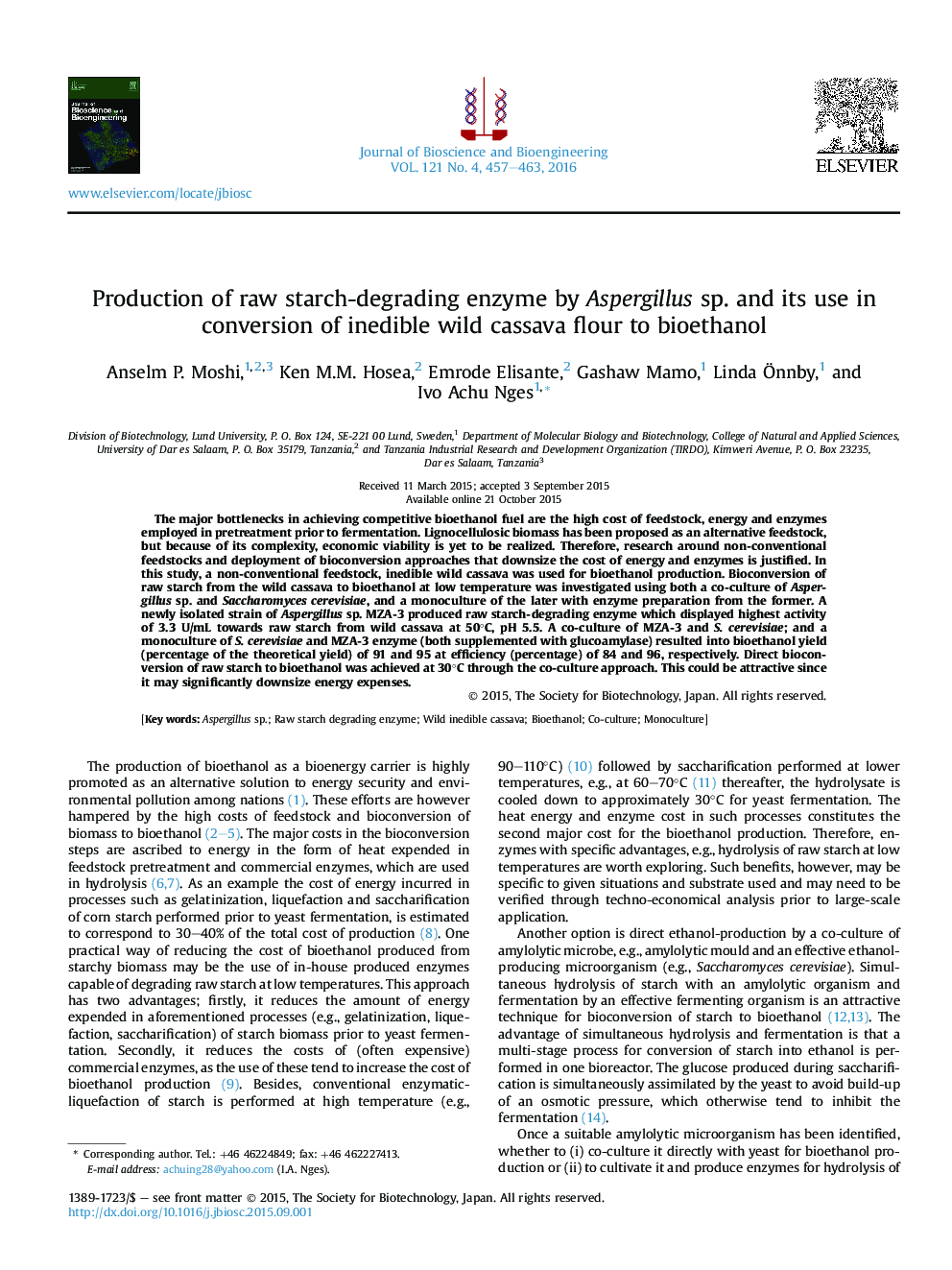| کد مقاله | کد نشریه | سال انتشار | مقاله انگلیسی | نسخه تمام متن |
|---|---|---|---|---|
| 20139 | 43159 | 2016 | 7 صفحه PDF | دانلود رایگان |

• Ethanol was produced effectively from inedible cassava flour.
• Newly isolated strain Aspergillus sp. MZA-3 produced raw starch-degrading enzyme.
• Bioconversion of raw cassava starch to ethanol at low temperature was achieved.
• Mono- and co-culture fermentation resulted in high ethanol yields.
The major bottlenecks in achieving competitive bioethanol fuel are the high cost of feedstock, energy and enzymes employed in pretreatment prior to fermentation. Lignocellulosic biomass has been proposed as an alternative feedstock, but because of its complexity, economic viability is yet to be realized. Therefore, research around non-conventional feedstocks and deployment of bioconversion approaches that downsize the cost of energy and enzymes is justified. In this study, a non-conventional feedstock, inedible wild cassava was used for bioethanol production. Bioconversion of raw starch from the wild cassava to bioethanol at low temperature was investigated using both a co-culture of Aspergillus sp. and Saccharomyces cerevisiae, and a monoculture of the later with enzyme preparation from the former. A newly isolated strain of Aspergillus sp. MZA-3 produced raw starch-degrading enzyme which displayed highest activity of 3.3 U/mL towards raw starch from wild cassava at 50°C, pH 5.5. A co-culture of MZA-3 and S. cerevisiae; and a monoculture of S. cerevisiae and MZA-3 enzyme (both supplemented with glucoamylase) resulted into bioethanol yield (percentage of the theoretical yield) of 91 and 95 at efficiency (percentage) of 84 and 96, respectively. Direct bioconversion of raw starch to bioethanol was achieved at 30°C through the co-culture approach. This could be attractive since it may significantly downsize energy expenses.
Journal: Journal of Bioscience and Bioengineering - Volume 121, Issue 4, April 2016, Pages 457–463